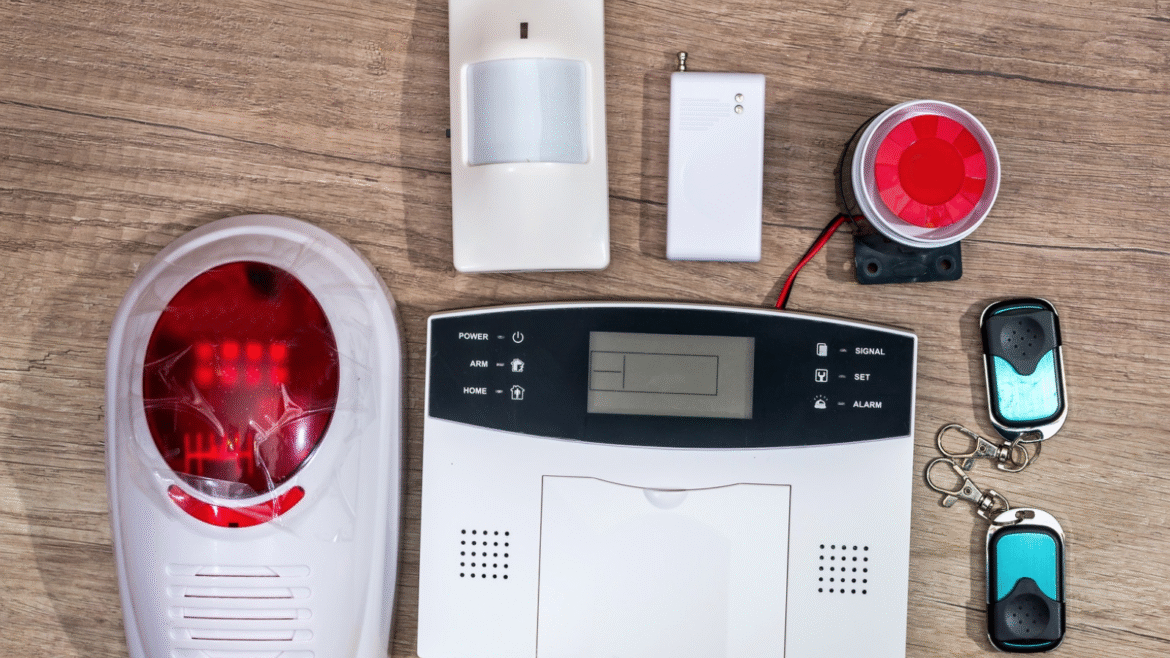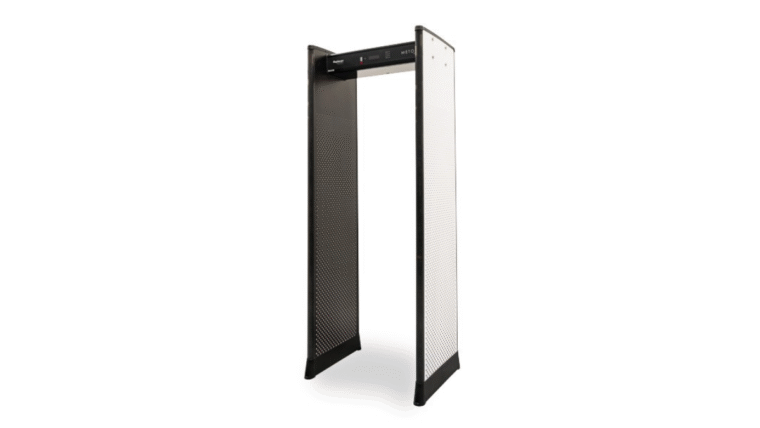Safety and property protection are unarguably paramount. Therefore, understanding “what is an alarm system” and “how does an alarm system work” is very, very important. Alarm systems are integrated security solutions designed to detect and respond to emergencies such as intrusions, fire outbreaks, floods, and carbon monoxide leaks.
With the advancement of technology, modern alarm systems have become smarter, more reliable, and more essential for both residential and commercial security.
This article provides an in-depth look into what alarm systems are, how alarm systems work, their components, types, and the various ways they are used to enhance safety and emergency response.
What Is an Alarm System?
To understand what an alarm system is, one must consider its primary purpose: to detect threats and alert individuals or emergency services of a potential hazard. An alarm system is a network of sensors, control units, and communicators that work together to monitor specific conditions—such as motion, smoke, heat, or water—and trigger alerts when those conditions exceed normal parameters.
Also read: 5 Ways to Protect Your House from Burglary
In homes and businesses, alarm systems serve as early warning tools, enhancing security, preventing property damage, and saving lives. These systems are capable of notifying occupants through sirens or alarms and can also relay signals to offsite monitoring centers.
How Does an Alarm System Work?
A core question homeowners and business operators ask is, how does an alarm system work? The operation of alarm systems hinges on a few interrelated components:
1. Control Panel
The control panel is the brain of the alarm system. It connects and regulates all other components. Upon receiving a signal from a sensor, the control panel decides whether to activate an alert, communicate with a monitoring station, or ignore the signal based on system settings.
2. Sensors
Sensors are responsible for detecting unusual or dangerous activity. They may include:
- Motion detectors: Use infrared, microwave, or ultrasonic waves to detect movement.
- Door/window contacts: Trigger when a door or window is opened.
- Glass break detectors: Detect the sound or vibration of shattering glass.
- Smoke and heat detectors: Monitor air quality and temperature for fire detection.
- Flood sensors: Detect the presence of water in areas prone to leakage.
- Carbon monoxide (CO) detectors: Identify toxic gas levels in the environment.
These sensors are positioned strategically throughout a property and are either hardwired or communicate wirelessly with the control panel.
Also read: Top 8 Affordable Security Products for Your Home
3. Alarm Sounder
When an alarm is triggered, the sounder emits a loud noise (siren or horn) to alert occupants and deter intruders. The sounder also helps ensure that anyone within hearing range is aware of the emergency.
4. Keypad
The keypad allows users to arm or disarm the alarm system using a code. Some systems may also include mobile app control or voice-enabled interfaces for convenience.
5. Telecommunicator or Communicator
Also known as dialers or communicators, these components send alarm signals to emergency services or monitoring centers through landlines, cellular networks, or the internet.
Different Types of Alarm Systems

Understanding what an alarm system is requires familiarity with the types available and their specific applications. Alarm systems are not one-size-fits-all—they vary by functionality, connection method, and monitoring capability.
1. Monitored Alarm Systems
These systems are connected to a 24/7 professional monitoring service. If triggered, they alert trained operators who verify the emergency and dispatch the appropriate response team. Monitored systems offer:
- Immediate professional response
- Reduced emergency response time
- Verification protocols to minimize false alarms
Also read: Top 5 Security Products for the Home | 2025 Update
2. Unmonitored Alarm Systems
Unmonitored systems activate local alarms but do not automatically alert authorities. They rely on individuals nearby or app notifications to take action. While more affordable, these systems offer limited protection if no one is available to respond.
3. Wired Alarm Systems
Wired systems require physical connections between all components. Benefits include:
- Superior reliability (no wireless interference)
- Long-term stability without battery reliance
- Minimal risk of signal jamming
However, they often require professional installation and are best suited for new construction or major renovations.
4. Wireless Alarm Systems
These systems use radio frequency to communicate between sensors and the control panel. Benefits include:
- Easy and fast installation
- Scalability and relocation flexibility
- Remote access via smartphone apps
Wireless systems, however, require regular battery replacement and may have signal limitations over long distances.
Also read: The Best Electronic Security Systems for Homes in 2025
5. Fire Alarm Systems
Fire alarms detect smoke, heat, or flame and alert both occupants and fire services. Advanced systems include:
- Addressable panels that pinpoint fire locations
- Sprinklers and pull stations
- Dual detection technologies for accuracy
6. Carbon Monoxide Alarm Systems
These systems detect toxic CO levels and provide early warning. Modern CO alarms may have:
- Digital concentration readouts
- Integration with broader building systems
- Battery backup during outages
7. Burglar Alarm Systems
Designed to detect unauthorized entry, these systems often include:
- Perimeter protection (doors, windows, glass)
- Interior motion sensors
- Integration with cameras and access control systems
8. Flood Alarm Systems
These alarms detect leaks or standing water and can include:
- Moisture-detecting cables
- Automatic water shutoff triggers
- Alerts via app or control panel
Flood alarms are crucial in preventing water damage, especially near plumbing or basement areas.
Signal Transmission and Monitoring
A critical aspect of any alarm system is how it communicates with monitoring centers during an emergency. Modern systems support multiple communication methods, each with unique advantages:
- Landline Connection: Traditional systems use standard telephone lines to send alerts to monitoring centers. While generally reliable, this method is susceptible to physical disruptions like line cuts or outages.
- Cellular Connection: Cellular communicators transmit alerts via mobile networks, offering a wireless and dependable solution. They’re especially useful in homes without landlines and serve well as a backup communication method.
- Internet (IP) Connection: Many modern alarm systems leverage broadband connections for high-speed, data-rich communication with monitoring services. However, their performance can be affected during internet outages.
To ensure maximum reliability, advanced alarm systems often use dual-path communication, combining both internet and cellular channels. This redundancy helps guarantee that signals still reach monitoring agents, even if one connection method fails.
Once a signal is received, professional monitoring personnel assess the situation and, if necessary, notify emergency responders. In some cases, they may also contact the homeowner directly to verify the alert. This ensures a timely and appropriate response to potential threats.
Also read: Your Smart Home System Installation for Beginners | Ultimate Guide
Alarm Systems: Emergency Response vs. Self-Monitoring
Once the control panel sends a signal to a central monitoring station, trained staff assess the situation:
- Attempt to contact the user for verification.
- If verification fails, notify appropriate emergency services (police, fire, or medical).
- Provide incident details for faster response.
Alternatively, self-monitoring systems bypass the monitoring center. Users receive app or text alerts and must determine whether to call emergency services themselves. While cost-effective, self-monitoring requires users to remain vigilant at all times.
Maintaining an Alarm System
Knowing what an alarm system is includes understanding that upkeep is essential. A system is only as good as its maintenance routine.
- Test the system monthly: Ensure sensors, sounders, and communicators are functional.
- Inspect components: Check for physical damage, sensor obstructions, and faulty wiring.
- Monitor battery levels: Particularly for wireless components and backup systems.
- Update firmware: Keep wireless modules current for security and performance.
- Schedule professional maintenance: Every 1–3 years, as per manufacturer guidance.
Regular upkeep ensures reliability during actual emergencies and prolongs system life.
How Alarm Systems Enhance Security
Alarm systems play a crucial role in modern security by:
- Deterring intruders: Loud alarms and visible systems discourage unauthorized access.
- Alerting occupants: Early warnings help people evacuate or respond appropriately.
- Minimizing damage: Quick detection of fire, floods, or CO leaks reduces property loss.
- Providing peace of mind: Whether at home or away, users know their property is monitored.
Whether professionally monitored or DIY, alarm systems contribute significantly to comprehensive safety plans.
Conclusion
In conclusion, knowing what an alarm system is and how an alarm system works is key to making informed decisions about home or business security. Alarm systems use a network of sensors and communicators to detect threats, alert occupants, and notify emergency responders. They come in various types, including monitored, unmonitored, wired, and wireless—each with specific benefits and use cases.
To ensure optimal protection, users must not only install the right system but also maintain it regularly. With advancements in smart technologies, alarm systems now offer greater control, connectivity, and reliability than ever before, making them indispensable tools in homes’ and businesses’ security.
Stay connected to this blog for more security updates. Follow us on X (formerly Twitter), @Logic_sss to stay informed and engaged.
Recommendations
- Computed Tomography X-ray: All you Need to Know
- People Screening Equipment: All You Need to Know
- People Screening Equipment: All You Need to Know
- Trace Detection Equipment: Where are they Used?
- What is a Fleet Management System | Full Guide
References
- www.alarmgrid.com – How Do Alarm Systems Work?
- www.hsforme.com – How Do Home Alarm Systems Work?
- getsafeandsound.com – 8 Different Types of Alarm Systems: Full Guide (2025)



